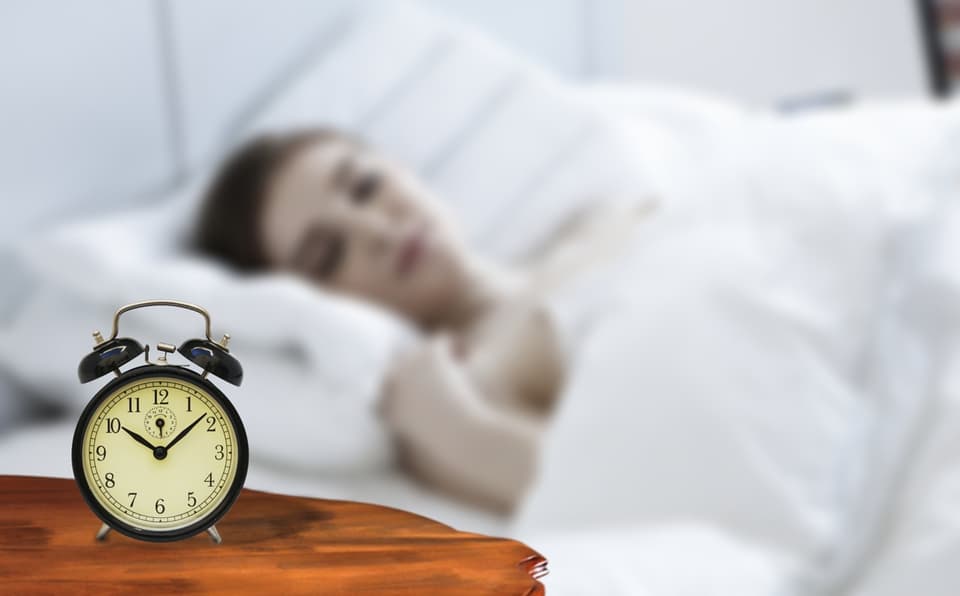
Lighter days are in sight. Indeed on Sunday March 30 at 1am, we bid farewell to winter and welcome longer evenings and warmer weather.
What is the 10-3-2-1 rule?
‘The 10-3-2-1 sleep method is a guide for how to manage your behaviour around bedtime with a view to improving your sleep,’ explains Kirsty Vant, a sleep specialist and psychotherapist at The Soke (thesoke.uk).
The numbers (10-3-2-1) refer specifically to pre-sleep steps to do throughout the day that prep you for a restful slumber.
The benefits of good sleep are plentiful for both physical and emotional health. Adequate rest helps to stabilise energy levels, mood, weight and could even add years to your life.
And so if you need a helping hand to rest your sleep routine, here’s a breakdown of what to do:
10 hours before bed: No more caffeine
We all know that too much caffeine interferes with sleep, but according to the 10-3-2-1 method, we should have our last Americano sip (and that also goes for caffeine-fuelled fizzy drinks) no later than 10 hours before we plan on drifting off so that the alert-inducing effects of caffeine don’t negatively affect sleep.
‘Caffeine reaches peak absorption one hour after consumption; however, research has shown that the rate at which caffeine is metabolised is influenced by factors such as genetics, physiology and environmental and so the range of time it takes caffeine to be processed by the body ranges from 1.5 hours at the quickest to 10-12 hours at the slowest,’ adds Vant.
3 hours before bed: Finish your last meal of the day
Digestion is a lengthy process, and it typically takes around three hours for food to travel through the digestive system.
The heavier your meal, the longer it takes for your body to process, so the idea is that leaving three hours before your last meal of the day and bedtime will help to improve digestion and minimise any bloating, acid reflux or other digestive woes that could impair sleep.
The 10-3-2-1 concept calls for a light dinner that’s packed with the good stuff. Fish with roasted vegetables or a tofu stir fry are easy to throw together meals that offer great nutritional bang for your buck whilst taking a load off the digestive system.
And that nightcap that you presume will help you nod off quicker? Sorry for the bad news, but all booze is banned under the 10-3-2-1 guidelines because alcohol reduces levels of restorative REM sleep which is crucial for feeling well rested.

Make sure you leave screens out of the bedroom
Pixabay
2 hours before bed: Switch off work mode
Evening time should be about recalibrating, and if you are squirrelling away at your email inbox after the sun goes down your brain will be in high alert mode. This raises levels of the stress hormone cortisol and interferes with natural sleep signals as the evening moves on.
“Allocating the two hours before bed for something that you enjoy instead of work is a great way to let your body and mind unwind. This will help to release hormones associated with relaxation and positive feelings,” adds Vant.
Switch your focus to doing things that will benefit physical and emotional relaxation. A soak in the tub or curling up with a book are good strategies.
1 hour before bed: Ditch screens
A huge 93% of Gen Z admit to losing sleep because of staying up on social media with the average user spending two hours scrolling every day.
And it’s not just our phones that are setting back sleep. Anything that gives off blue light exposure (that includes television and tablets) can disrupt the circadian rhythm by altering levels of the sleep hormone melatonin which makes it harder to fall asleep.
‘This is specifically because blue light is similar in intensity to natural sunlight and therefore exposure to screens at night can trick the brain into thinking it is daytime delaying the release of the hormone melatonin which helps us get ready to sleep,’ explains Vant.
Ditch screens for a calming activity like journalling, meditation or even a few minutes spent in a restorative yoga position like child’s pose.
The 10-3-2-1 method is all about setting up healthy sleep hygiene by tackling some of the fundamental pitfalls that are keeping us awake. The 4-step rules are no brainer tips that are packaged up as an instructional ‘sleep method’ which makes the bite-sized advice feel more doable.
To get the most from the TikTok sleep method you might need to set yourself helpful reminders throughout the day via alarm alerts or post-its on your desk.
Making your bedroom environment a nicer place to be will also help you to successfully wind down. And for the ultimate sleep position once snuggled under the covers, the NASA-approved zero-gravity sleep position, which involves elevating your head and legs slightly to just about the heart level and keeping your spine straight could be the way forward to help you get those elusive eight hours – well according to astronauts anyway. And with that we’re off to get our zzzz’s.














